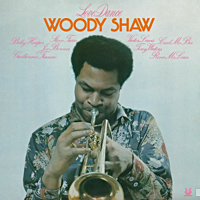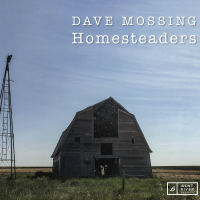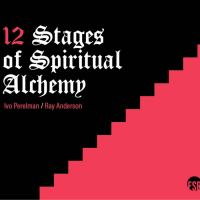Home » Jazz Articles » Album Review » Gustavo Cortinas Snapshot: Esse
Gustavo Cortinas Snapshot: Esse
Cortinas' quest for self-realization and self-actualization leads him down a variety of paths paved by various human dilemmas and universal truths. In following these different avenues and navigating the bends in the road, he winds up creating statements that are both studious and thought-provoking in nature. It's a project that's certainly high-minded on the surface, but you don't need a Ph.D. in Ancient Philosophy in order to take in what this album has to say. Music, not theoretical discourse, shepherds the ears on this journey, so you can take or leave the surveying of connections between concept and composition.
With a lengthy album opener dubbed "Dialectics Of Freedom," one might expect a taste of outsider art or an avant-garde melee. That's not what Cortinas delivers. Instead he sets up a long form journey in five, set in motion by dovetailing cross rhythms. There's ample blowing space, grooves shifts to reflect dimensional and textural changes, and vamps arrive and/or evolve at just the right moments to help provide signposts in the music. It's Cortinas' reflections on Hegel's concept of freedom. "Filosofia" follows, opening as an amorphous swirl with Kitt Lyles' arco bass, Justin Copeland's muted trumpet, and Roy McGrath's matte-finished tenor saxophone in the center of the sound. Then a shape emerges, as slow progress is drafted atop a bass line in fifteen. It's a somber set-up that fixes the mood of this ballad for the entire piece.
Myriad forms of music follow, giving Cortinas and company a chance to express and investigate age old questions. "The Allegory Of The Cave" touches on Plato's beliefs and observations on theoretical and empirical realities, manifesting as a sunny waltz; "Arete," introduced by Copeland's trumpet and eyeing Mexican realms in sound, looks to Aristotle's thoughts on morality and virtue; "Cogito Ergo Sum" is a serious reflection on Descartes' "I think, therefore I am" realization; "Global Skepticism" opens as kaleidoscopic lopsided funk, eventually entering a weightless realm and building into a skirmish that serves as a perfect representation of doubt and insecurity; and "On Certainty" tackles Wittgenstein's solidity of thought and action, opening on long tones, shifting to a fixed section in eleven, and invoking the powers of swing and variation against steadiness. All of those tracks provide a two-pronged education, detailing the beliefs of various deep thinkers while demonstrating how their principles can feed into music.
The album then sees its end with two drastically different works—the driven "Ubermensch," exploring Nietzsche's niche in the philosopher's realm, and a wistful tale dubbed "The Man Of Flesh And Bones," born of Miguel de Unamuno's message(s). The striking differences between these two performances, and the factors that separate each track on the album, speak to a wide gap in understanding and viewpoints between those who postulate on life and existence. Perhaps they all have it right in a way, and maybe each individual simply has to take the pieces that fit. Or it's conceivable that nobody's come close to hitting the mark when it comes to life's questions and answers. There's certainly a lot to think about after hearing this one, but one thing is for sure: Gustavo Cortinas has worked everything out in his musical neck of the woods.
Track Listing
Dialectics of Freedom #1; Filosofia #2; The Allegory of the Cave #3; Intro to Arête #4: Arête #5: Cogito Ergo Sum #6; Global Skepticism #7; On Certainty #8; Ubermensch #9; Intro to the Man of Flesh and Bone #10; The Man of Flesh and Bone #11
Personnel
Gustavo Cortiñas
drumsJustin Copeland - trumpet Roy McGrath - tenor sax (1,3,4,5,8) Artie Black - tenor sax (2,6,7,9,10) Adam Thornburg - trombone Hans Luchs - guitar Joaqu'n Garc'a - piano Kitt Lyles - bass Gustavo Cortiñas - drums & cymbals
Album information
Title: ESSE | Year Released: 2017 | Record Label: OA2 Records
Tags
PREVIOUS / NEXT
Support All About Jazz
 All About Jazz has been a pillar of jazz since 1995, championing it as an art form and, more importantly, supporting the musicians who make it. Our enduring commitment has made "AAJ" one of the most culturally important websites of its kind, read by hundreds of thousands of fans, musicians and industry figures every month.
All About Jazz has been a pillar of jazz since 1995, championing it as an art form and, more importantly, supporting the musicians who make it. Our enduring commitment has made "AAJ" one of the most culturally important websites of its kind, read by hundreds of thousands of fans, musicians and industry figures every month.






















